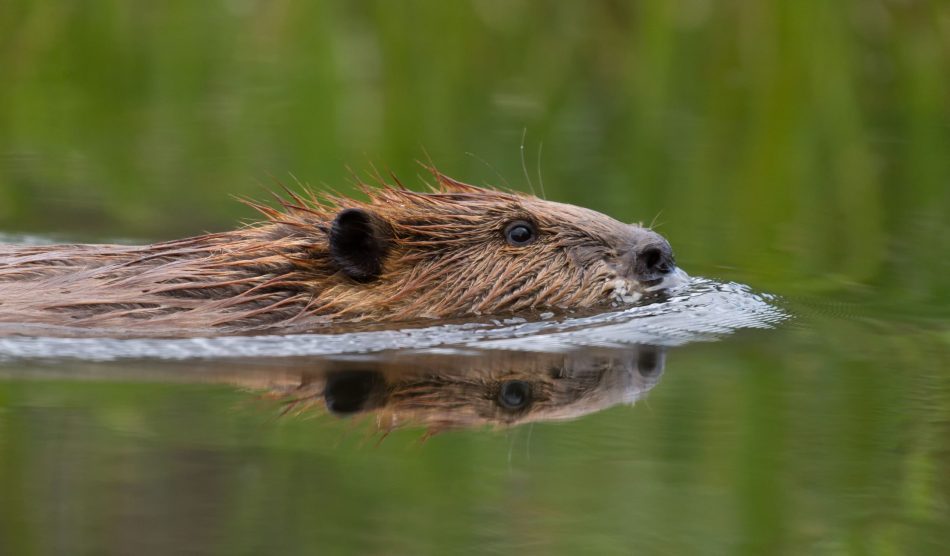In 2013, a group of beavers that had escaped from captivity were found living wild along a river in Devon, England. When plans to exterminate the animals were greeted by a popular outcry, the government agreed to a scientific trial to measure the environmental impact of the beavers, with the funds entirely raised by Devon Wildlife Trust and its supporters.
Now it’s 2020, and the results of the five-year study of the beavers have come to light. According to the study, the beavers have alleviated flooding, reduced pollution and boosted populations of fish, amphibians and other wildlife. The report, which will help the government decide whether to allow wild beavers to return to England after being hunted to extinction more than 400 years ago, concludes that the species has brought measurable benefits to wildlife and people.
The number of beavers in Devon has risen from two breeding pairs in 2015 to at least eight pairs today as the herbivorous rodent has expanded along tributaries including the River Tale. The beavers’ positive impact includes one family constructing six dams upstream of the flood-prone village of East Budleigh. The dams have slowed the flow of floodwater through the village, reducing “peak flows” during flood events.
On top of that, the scientists also found that the beavers played a significant role in filtering pollutants including manure, slurry, and fertilizers from the river, while new wetlands created by the beavers have benefited water voles, riverine birds such as dippers and wildfowl including teal.
There were 37% more fish in pools created by beaver dams than in comparable stretches of the river. Trout have been recorded leaping over beaver dams during high river flows. All in all, the findings paint a tribute to beavers—nature’s humble helpers.












